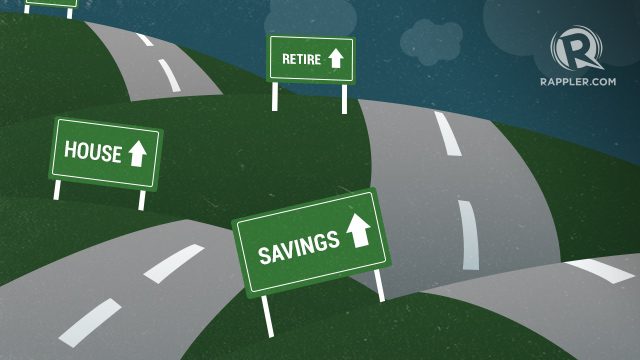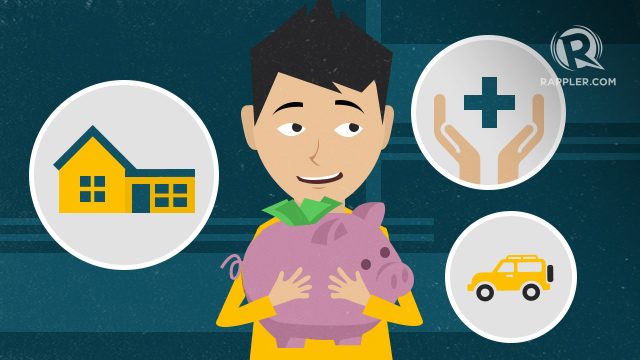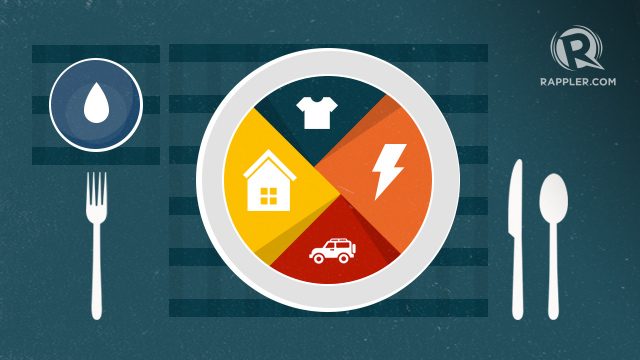SUMMARY
This is AI generated summarization, which may have errors. For context, always refer to the full article.

MANILA, Philippines – With age comes a growing consciousness about money. It was simpler when we were children, when all we had to do was put spare change in a coin bank. But like most young, working professionals, I’m beginning to think more and more about things like other sources of income, the need for life insurance or saving up for retirement.
The good thing is that information about finance matters are more readily available than before, and are even presented in an easy-to-understand way. Others may even be surprised that a free online curriculum on being financialy independent called the Brighter Life Institute exists, and so I signed up for its first offering called Getting Started.
Surprisingly, Getting Started was brief but concise and didn’t feature a lot of confusing financial jargon. First time users like myself are bound to take it at a comfortable and leisurely pace since it’s available 24/7. I also found the topics on finance features to be informative and easy to understand.
As someone who just begun his journey towards financial security, I can say that taking the course made me realize several things. Those realizations are:
1. Financial planning is a road we will always travel.
The module set expectations right at the very start by letting students determine their life stage – that means where you are in your life journey and not just how old you are. And since it’s not about the age, it means that the financial journey is a lifelong one.
2. Financial planning is about commitment and consistency.

This brings me to my second point: personal finance is a lifelong practice. And for it to be effective and impactful, it must be worked on until it becomes part of a routine or even developed as an instinct to save and invest.
3. Financial planning is personal.

It is only in BLI that I understood and appreciated how unique financial management styles could be. This actually lessened the daunting feeling I had when I decided to adopt and apply financial planning methods.
4. Financial planning is never just about the money.

Sure, this may sound like I’m underestimating the simplest definition of financial planning, which is really about having money whenever you may need it. But I now believe that its heart is about achieving your dreams and securing the future of your loved ones, not really about how much you have in your portfolio.
5. Financial planning should be fun.

I loved it when Randell Tiongson and Marvin Germo talked about financial products as food. Yes, even using the balanced plate theory. Learning about money management can be fun if you choose to approach it that way.
Though still in its infancy, BLI is a timely addition to the personal finance movement that has inspired many Filipinos to be more savvy and knowledgeable about their money. After Getting Started, I do hope that BLI will deliver on its promise and demonstrate how financial planning can be simple and uncomplicated, much like what we dream for ourselves and the ones we love.
Proof is in the know-how
Be it taking an online course like BLI or attending related seminars, it’s important to take that first step towards learning more. Then, like an investment, the basic foundations of financial knowledge can grow exponentially over time. Tangibly, this can mean bigger savings in your bank account and more funds placed into smart investments. But moreover, it can equate to peace of mind and the satisfaction that comes with financial security.
It will also help to find inspiration in people who are brilliant at financial management. One example is Mary Rose Fausto. A former investment banker, she left the industry to prioritize raising her children. She started training her three sons to develop financial skills and values at an early age. By the time they got to grade school, the boys were already making balance sheets for their allowance.
Today, her sons are all financially independent and are investing their own money wisely. Fausto believes that establishing financial independence is just like preparing for life’s harsh realities.
“If from the start you’ve already instilled good money values, you can be confident that when [your child] grows up, enters college, and starts working, ‘Hindi magugutom ang anak ko. Marunong yan eh.” (My child won’t go hungry. He’s capable.)
“So it’s useless to say ‘take this up’ or ‘do this course’. We all know it’s when they follow their passion that they become successful. It’s just that hopefully, they don’t go hungry along the way. That is why I say raising your children with [good financial values] is actually arming them with economic self-defense,” she explains.
The same sentiment holds true for everyone, regardless of age.
Financial independence is a fulfilling journey in which there is always something new to learn as your life continues. It’s a matter of establishing good habits and building on those. And every journey starts with that first step. – Rappler.com
You can sign up at the Brighter Life Institute for free at www.brighterlife.com.ph
Add a comment
How does this make you feel?

There are no comments yet. Add your comment to start the conversation.